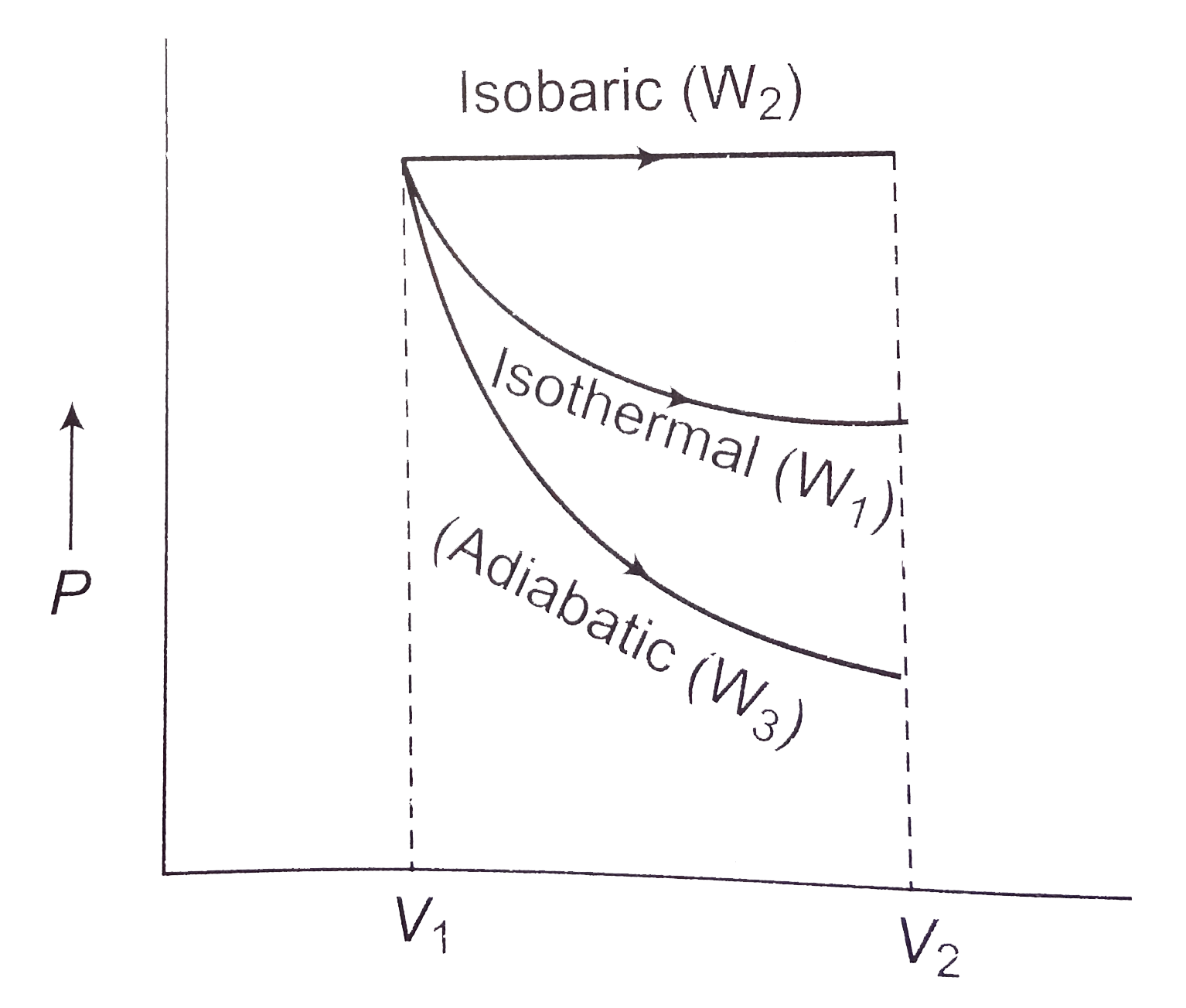Starting with the same initial conditions, an ideal gas expands from volume V1 to V2 in three different ways, the work done by the gas is W1 if the process is purely isothermal, W2 if purely isobaric and W3 if purely adiabatic, then
A
W2>W1>W3
B
W2>W3>W1
C
W1>W2>W3
D
W3>W1>W2
Video Solution
Text Solution
The correct Answer is:A

(P0,V1,T0)isothermal−−−−−→W1(,V2)
(P0,V1,T0)isobaric−−−−→W2(,V2)
(P0,V1,T0)adiabatic−−−−→W3(,V2)
Draw P-V diagram
Compare area below the processes
W2>W1>W3
|
Topper's Solved these Questions
Similar Questions
Knowledge Check
Starting with the same initial conditions, an ideal gas expands from volume V1 to V2 in three different ways, the work done by the gas is W1 if the process is purely isothermal, W2 if purely isobaric and W3 if purely adiabatic, then
AW2>W1>W3BW2>W3>W1CW1>W2>W3DW1>W3>W2With same initial conditions , an ideal gas expands from volume V1 to V2 in three different ways . The work done by the gas is W1 if the process is isothermal , W2 if isobaric and W3 if adiabatic , then
AW2>W1>W3BW2>W3>W1CW1>W2>W3DW1>W3>W2Starting with the same initial conditions, an ideal gas expands from volume V1 to V2. The amount of work done by the gas is greatest when the expansion is
AisothermalBisobaricCadiabaticDequal in all cases
A sample of gas expands from volume V1 to V2 .The amount of work done by the gas is greatest when the expansion is
View SolutionA gas expands under constant pressure P from volume V1 toV2The work done by the gas is
View SolutionAn ideal gas expands from an intial volume V into vacuume under isothermal conditions. For this process,
View SolutionEntrolpy change in isothermal expansion work of one mole of an ideal gas from volume V1 and V2 is given by
View SolutionAn ideal monatomic gas expands to twice its volume. If the process is isothermal, the magnitude of work done by the gas is W1. If the process is adiabatic, the magnitude of work done by the gas is Wa . Which of the following is true ?
View Solution
